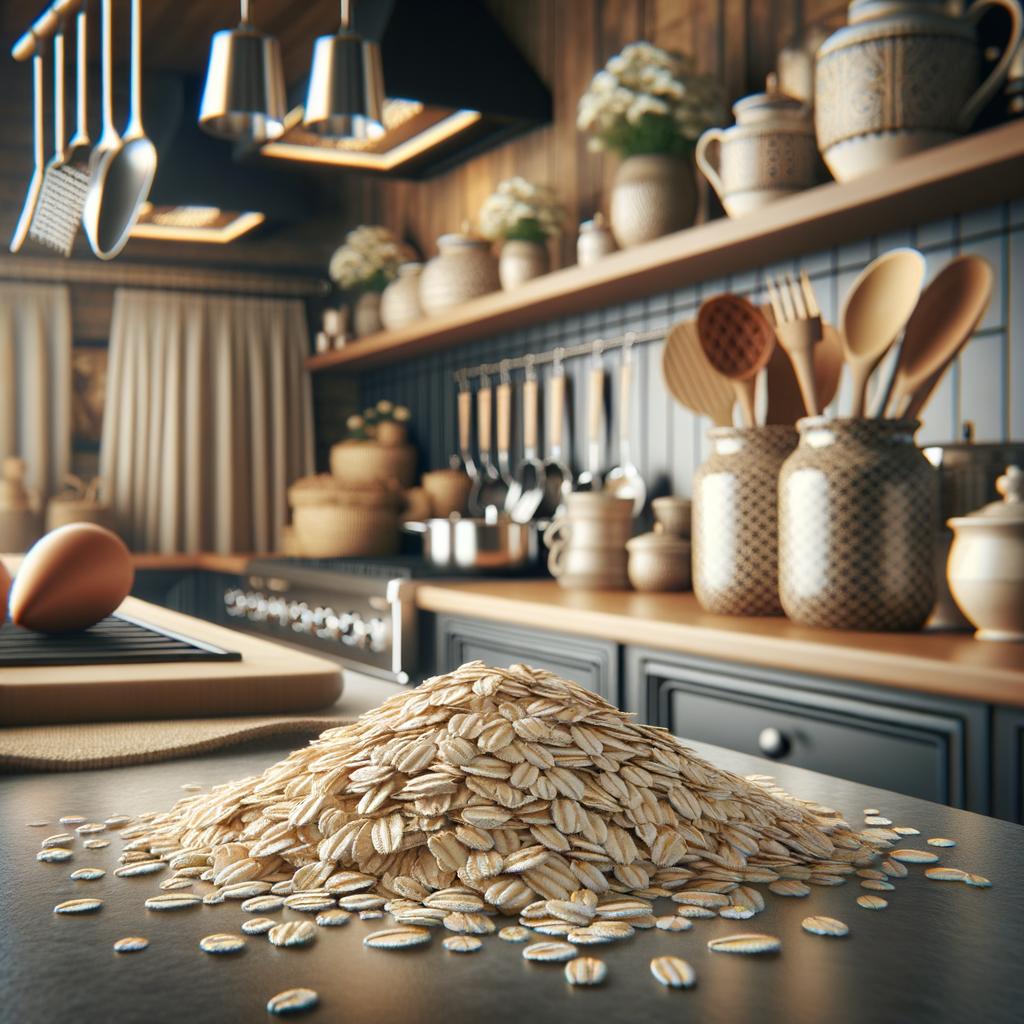Allow me to introduce you to the humble yet mighty ingredient - Rolled Oats. At first glance, they may seem quite ordinary, but these small, flat, circular grains are truly extraordinary. Their appearance is somewhat creamy and golden, with a slightly rough texture that becomes delightfully chewy when cooked. The flavor is subtly sweet and nutty, with an earthy undertone that makes them a versatile ingredient in many dishes. What sets rolled oats apart from similar grains is their unique processing method. They're whole oat groats that have been de-husked, steamed, and then rolled into flakes. This process retains much of the nutritional value while making the oats easier to cook.
Rolled oats are a culinary chameleon, effortlessly adapting to both sweet and savory dishes. They are most commonly used to make heartwarming oatmeal, a breakfast staple in many cultures. They also add substance and texture to baked goods like cookies, bread, and granola bars. In savory applications, they can be used as a binder in dishes like meatloaf or as a crunchy topping for casseroles. Apart from culinary uses, rolled oats have been used for their soothing properties in skincare, and they hold a significant place in folklore as symbols of prosperity and abundance.
The history of oats is as rich and varied as their uses. Originating in ancient China and Greece, they were initially considered a troublesome weed. Over time, however, their value as a hearty, nutritious food source was recognized. In Scotland, where the cool, wet climate is perfect for growing oats, they became a dietary staple and a symbol of Scottish resilience and resourcefulness. The tradition of oat rolling began in the 19th century and revolutionized oat consumption, making it easier and quicker to prepare. The story of oats is a testament to the beauty of simplicity and the power of perseverance.
Nutritionally, rolled oats are a powerhouse. They are high in fiber, particularly beta-glucan, a type of soluble fiber that can help lower cholesterol levels. They're also a good source of protein and packed with vitamins and minerals like manganese, phosphorus, magnesium, and vitamin B1. Furthermore, the slow-release carbohydrates in oats provide sustained energy, making them an excellent food for maintaining a healthy weight. When compared to similar grains like wheat or rice, oats offer a higher protein content and unique health benefits, such as supporting heart health and blood sugar control. So, whether you're enjoying a bowl of oatmeal or a homemade oatmeal cookie, take a moment to appreciate the journey of the humble oat from weed to wonder-grain.

